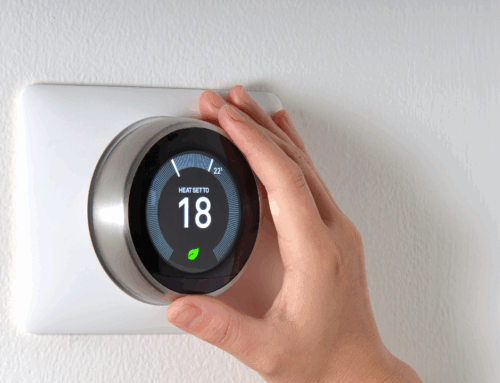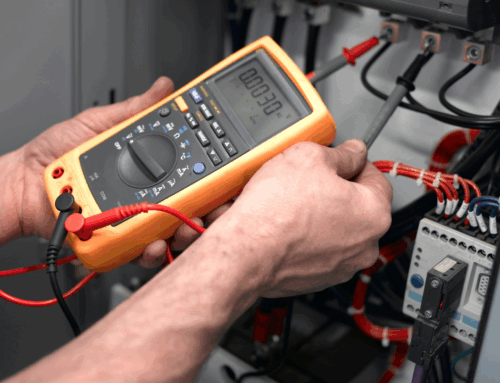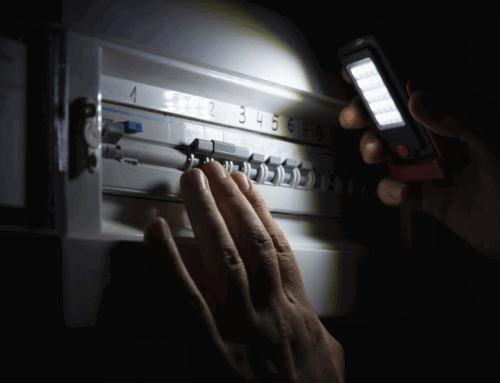Electrical safety is a top priority for any business. Electrical faults, if left unchecked, can lead to serious accidents, fires, and financial losses. That’s where EICR testing (Electrical Installation Condition Report testing) comes into play. This essential service ensures that your electrical system is safe, compliant with regulations, and functioning efficiently. In this article, we will explore what EICR testing is and why it’s crucial for your business.
What is EICR Testing?
EICR testing is a thorough inspection of a building’s electrical system, designed to identify potential safety hazards, ensure compliance with current regulations, and assess the overall condition of the wiring, components, and installations. The result of an EICR test is a detailed report, which provides a comprehensive assessment of the electrical installation’s safety, including recommendations for repairs or improvements.
The primary goal of EICR testing is to identify any issues that could pose a risk to people, property, or equipment. The report highlights any areas that do not meet the required safety standards, helping you to take action before problems arise.
Why is EICR Testing Important for Your Business?
-
Compliance with Legal Requirements
In the UK, businesses are required to comply with certain safety standards and regulations set by the Health and Safety Executive (HSE). One of the key regulations is the Electricity at Work Regulations 1989, which mandates that all electrical systems must be properly maintained and in safe working order.
By law, an EICR test must be conducted at regular intervals, typically every 5 years for commercial properties, or sooner if significant alterations or repairs have been made to the system. Failing to comply with these regulations can result in fines, insurance issues, or even legal action in the event of an electrical incident.
-
Enhanced Safety for Employees and Customers
Electrical systems can degrade over time due to wear and tear, exposure to environmental factors, or poor initial installation. Faulty or outdated electrical systems can present serious risks, including electrical shocks, fires, or equipment damage. By conducting regular EICR testing, you can identify and rectify issues before they lead to accidents, ensuring a safe environment for both your employees and customers.
Moreover, businesses with a commitment to electrical safety and compliance are more likely to build trust with their clients, employees, and business partners, showcasing their commitment to high safety standards.
-
Prevent Costly Repairs and Downtime
By identifying electrical faults early through EICR testing, you can prevent costly and disruptive breakdowns. Small issues, such as faulty wiring or corroded components, can escalate if left unattended, resulting in more expensive repairs or even the need for a complete system overhaul. Regular EICR inspections allow you to address issues promptly, reducing the likelihood of sudden failures and expensive emergency repairs.
Additionally, if your business relies heavily on electrical systems, unplanned downtime can be costly. Regular inspections help ensure your electrical system remains reliable, reducing operational interruptions and keeping productivity levels high.
-
Improving Energy Efficiency
EICR testing not only checks for safety but also helps improve energy efficiency. Older electrical systems, or systems that are poorly maintained, can waste energy, leading to higher utility bills. Through the inspection, an electrician may identify areas where energy efficiency could be improved, such as replacing outdated lighting systems with energy-efficient LEDs or upgrading electrical panels to better handle modern electrical loads. By improving the overall efficiency of your electrical system, you can reduce energy consumption and lower operational costs.
-
Insurance and Liability Protection
Many insurance providers require proof of EICR testing to validate coverage, particularly for commercial properties. If your business is subject to an electrical fire or an accident caused by faulty wiring, an up-to-date EICR report will show that you’ve taken the necessary steps to mitigate risks, potentially protecting your business from liability. Without an EICR report, you may face difficulties in making claims or dealing with insurance disputes.
-
Increased Property Value
Regularly updated EICR testing also plays a role in maintaining and increasing the value of your commercial property. If you’re planning to sell or lease your property, a comprehensive and up-to-date EICR report will demonstrate that the building is well-maintained and safe, which can make it more attractive to potential buyers or tenants. Buyers are more likely to invest in properties with up-to-date electrical systems, knowing that they won’t have to face immediate repairs or upgrades.
How Often Should EICR Testing Be Conducted?
The frequency of EICR testing depends on the type of property and its usage. For most commercial properties, it’s recommended to carry out EICR testing every five years, or more frequently if:
-
There have been significant electrical modifications or upgrades.
-
The building is used for high-risk activities, such as manufacturing or heavy machinery operation.
-
You experience persistent electrical issues or power surges.
Your qualified commercial electrician can help determine the right testing schedule based on your building’s needs and usage.
Conclusion
EICR testing is a vital service for any business that values safety, compliance, and efficiency. By ensuring your electrical system is safe, efficient, and compliant with current regulations, you are protecting your business, employees, and customers. Regular EICR testing can help you avoid costly repairs, reduce energy consumption, and provide peace of mind knowing that your electrical system is operating safely.
To safeguard your business and meet legal obligations, consider scheduling EICR testing with a professional commercial electrician today.







Leave A Comment